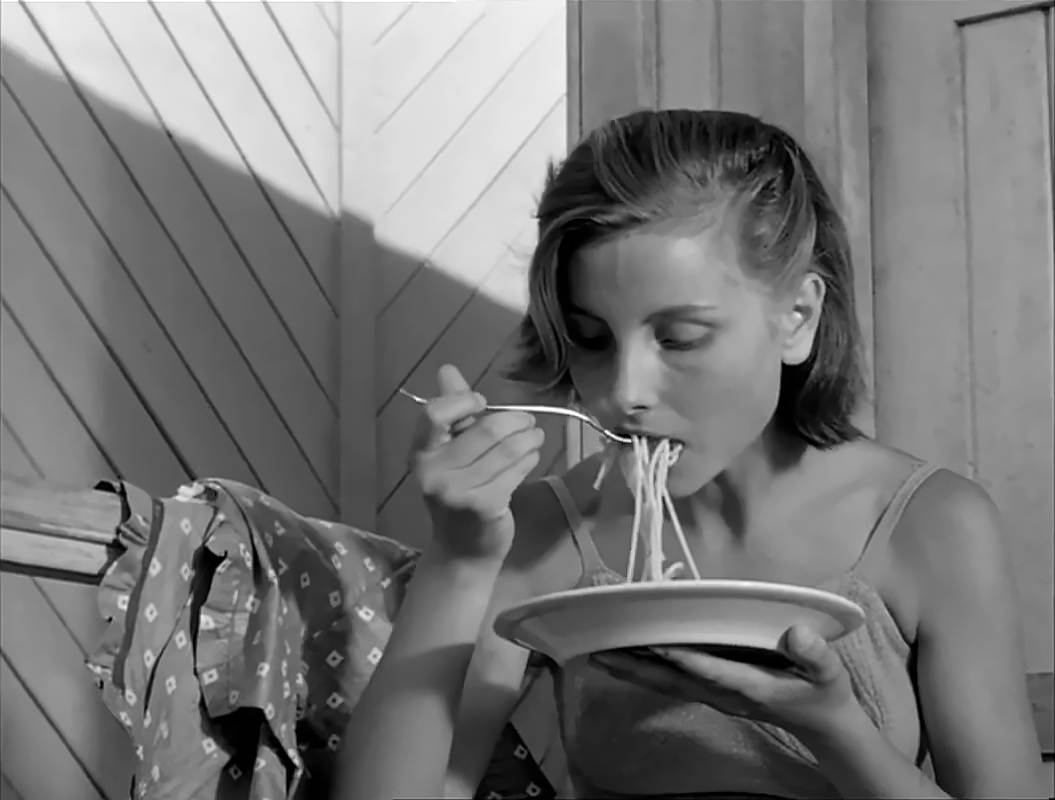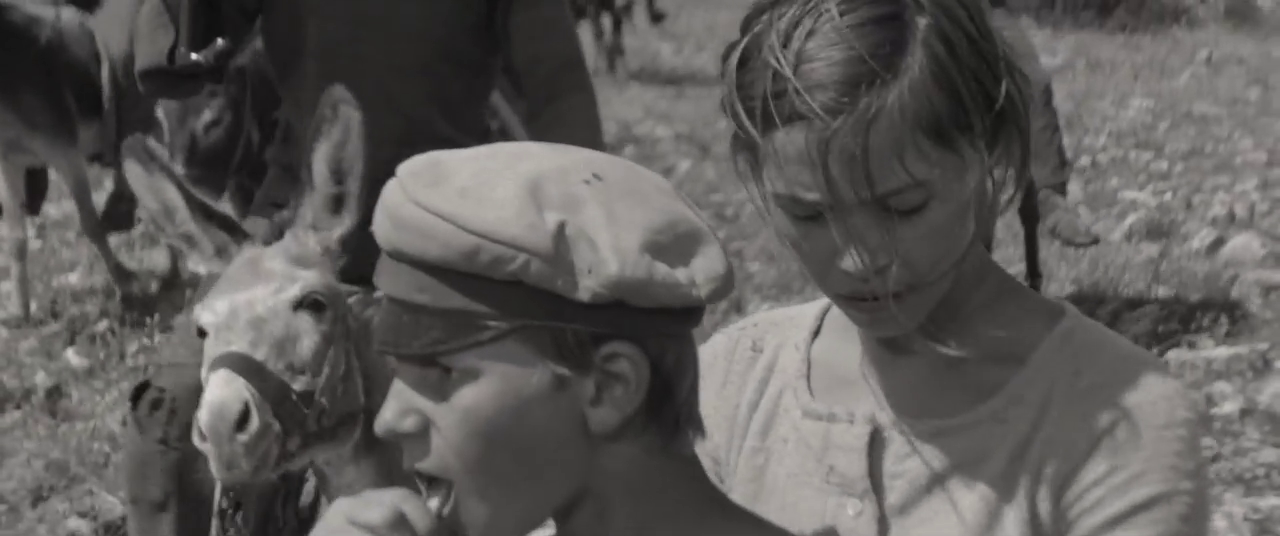“One grilled cheese, two slices of toast, two coffees. One pepper steak no chili and a plate of spaghetti and meatballs. Two glasses of milk. One plate of spare ribs. A chicken in a basket with three cups of honey. One lean smoked meat sandwich with pickles and mustard. One two-cream coffee and two club sandwiches. Two clubs.”Françoise Durocher, Waitress (André Brassard, 1972)
May
21
lunch break

Waitress Françoise Durocher, this may be Luce Guilbeault, on her lunch break. DP: Thomas Vámos.
– Françoise Durocher
comedy
Domenica d'agosto [Sunday in August] (Luciano Emmer, 1950)
Apr
29
spaghetti di mamma

Marcella (Anna Baldini) enjoying mamma's spaghetti on the beach of Ostia. DPs: Leonida Barboni, Ubaldo Marelli & Domenico Scala.
Série noire (Alain Corneau, 1979)
Apr
9
canned pilchards

Franck Poupart (Patrick Dewaere) about to dig into a can of pilchards. A pile of French women's magazine “marie claire” is next to him on an otherwise bare coffee table. DP: Pierre-William Glenn.
“Trouble is, she likes everything. She's always happy. She desires nothing, envies no one, is curious about nothing. You can't surprise her. She doesn't notice the humiliations, though they happen to her every day. It all rolls off her back like some waterproof material. Zero ambition. No moral code. Not even a whore's love of money.”Io la conoscevo bene [I Knew Her Well] (Antonio Pietrangeli, 1965)
Apr
2
cocktails
.png)
A lone Roberto (Enrico Maria Salerno) at a lively cocktail party in Rome's hypermodern EUR district. DP: Armando Nannuzzi.
– the writer
Привързаният балон [Privarzaniyat balon / The Tied-Up Balloon] (Binka Zhelyazkova, 1967)
Mar
17
bread

A boy and young woman (Janet Miteva) riding a donkey. The boy eats a handful while the woman faces downwards. There are several donkeys with riders behind them. DP: Emil Vagenshtain.
Mord und Totschlag [Degree of Murder] (Volker Schlöndorff, 1967)
Mar
4
juice

A pensive Marie (Anita Pallenberg) drinking something red from a bottle with a green straw. DP: Franz Rath..
“Let's be different. Let's not hate anyone.”The World's Greatest Sinner (Timothy Carey, 1962)
Mar
1
eggs

Clarence “God” Hilliard (Timothy Carey) sitting at a round dinner table talking to his wife who's leaning against a counter holding a carton of eggs and crockery. DPs: Frank Grande, Robert Shelfow, Ray Dennis Steckler & Edgar G. Ulmer.
– Clarence “God” Hilliard
The Whole Shootin' Match (Eagle Pennell, 1978)
Feb
23
dinner with dad

Father and son at a small messy dinner table in a small kitchen. The dad, Frank (Sonny Carl Davis) is going on about something while the kid, T. Frank (David Weber), licks his finger. DP: Eagle Pennell.
“The popcorn you are eating has been pissed in. Film at eleven.”The Kentucky Fried Movie (John Landis, 1977)
Feb
9
popcorn

A white guy munches popcorn in a seemingly empty movie theatre while an usher, standing right behind him, lights a cigarette. DP: Stephen M. Katz.
– newscaster
A cavallo della tigre [On the Tiger's Back / Jail Break] (Luigi Comencini, 1961)
Jan
6

Two men in a doorway with a stunned look on their faces and their mouths stuffed with food. DP: Aldo Scavarda.